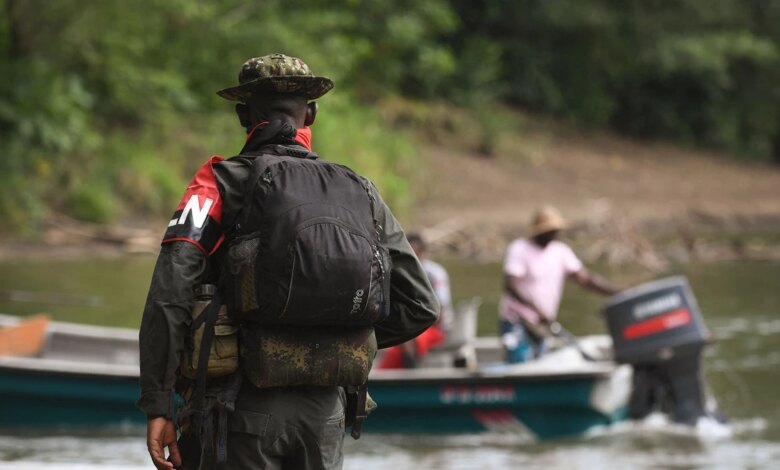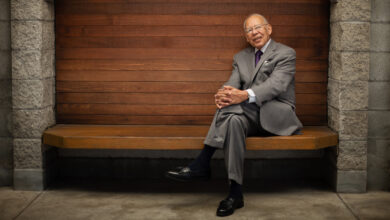How Colombia Became South America’s Hardest Country to Be …… | News & Reporting

Rodrigo is a Christian fisherman who lives with his wife in the department of Chocó, a jungle region near the border Colombia shares with Panama and one of the wettest places on earth.
Due to its remoteness, the town does not have paved streets, and the presence of police and other Colombian authorities is scarce. Residents primarily travel the mighty Atrato, Baudó, and San Juan Rivers by motor boat, and Rodrigo supports his family by selling gas, as reported by Open Doors, which first told his story.
Despite the seeming necessity of his business, Rodrigo and his family are isolated. The majority indigenous community in the area where the family lives has rejected them because of their faith and have socially and economically excluded them due to their refusal to participate in the animistic rituals that are common among the natives. This isolation has also made Rodrigo vulnerable to the regionally dominant guerrilla and paramilitary groups, who periodically threaten to shut down his business if he doesn’t pay extortion fees—a crime that affects the whole country but is even worse for Christians.
Rodrigo’s story encapsulates two of the biggest reasons Colombia has been the most dangerous country in South America in which to be a Christian over the last five years, according to Open Doors’ World Watch List (WWL). On this year’s list of the most difficult places to be a Christian, the country ranks No. 34 globally. So how did a nation with a long democratic tradition and a Catholic majority become one of the most precarious places for believers in the Western Hemisphere?
Much of Colombia’s notorious violence dates back to 1948, when the liberal presidential candidate Jorge Eliécer Gaitán was assassinated, triggering a national tragedy known as “El Bogotazo” and an upsurge in political violence. In the aftermath of Eliécer Gaitán’s death, liberal guerrilla groups emerged, fueled by the Communist ideology of the Cuban Revolution and spreading terror in rural areas.
In the 1980s, with the rise of drug trafficking, the guerrilla groups became allies of the drug traffickers. But after the fall of drug lords like Pablo Escobar in the 1990s, these groups and their opponents, paramilitary groups, both took over the drug trafficking business. As Christianity Today reported back in 1998, not infrequently, Christian leaders became victims of kidnapping, murder, and displacement.
“Colombia is a country where there are two realities. On the one hand, there is a lot of freedom in the big cities, and the Christians there are not even aware of the persecution that occurs in the rural areas of the country,” said Ted Blake, the director of Open Doors in Spain. “[But] in those rural areas, there are armed groups—guerrillas or paramilitaries—who don’t allow anything to be done without their approval, which you obtain by paying them [extortion money].”
The second form of persecution in rural Colombia, says Open Doors, is carried out by indigenous groups that have autonomy to establish their own rules in the territories that have been given to them. Frequently, these norms prohibit conversion to the Christian faith, which is punishable by expulsion from the community, expropriation of land, or economic exclusion.
The persecution of Christians in indigenous communities is most evident in the department of Cauca, in the south of the country near Ecuador. The majority indigenous population in that region exceeds 200,000 people. Those who dare to embrace the Christian faith, an estimated 14,000, have suffered dismissal from their jobs, displacement, and other types of social exclusion. “As we do not chew the coca leaf, nor do we participate in the road blockades organized to protest against the Colombian government, nor do we cast spells with herbs, they displace us,” Rogelio Yonda Trochez, an evangelical pastor, explained to the BBC in 2012.
But the violence carried out by drug trafficking groups and the oppression of indigenous communities are not the only reasons for the toxic environment that Colombian Christians experience. According to Open Doors, secular intolerance has increased and has kept some Christians from sharing their convictions on abortion, marriage, and religious liberty.
In 2021, thousands of Colombians across the country took to the streets to protest tax hikes and a delay in COVID-19 vaccine distribution. When Christian leaders declined to protest or spoke out against them, some protesters vandalized churches, including Bogotá megachurch El Lugar de Su Presencia.
‘Inconsistencies in the methodology’?
Colombia has been one of the most advanced countries in the region since 1991, when the Constitution first recognized the freedoms of religion, conscience, and worship as fundamental rights in this historically Catholic country.
Consequently, Colombian authorities have viewed Open Doors’ more recent reports with skepticism.
“The violence in Colombia has affected multiple churches and believers,” Lorena Ríos, the former director of the Office of religious Affairs of the Ministry of the Interior (and now senator for the Christian party Colombia Justa Libres), told CT. “However, the cause of violence has not always been due to issues of faith but rather due to surrounding situations, whether political (participation or support for a candidate), social leadership (pastors who denounce corruption or threats from groups), or issues personal (business and debts). But it is not exclusively due to an issue of persecution for being Christians.”
In fact, in 2021 under Ríos, the Office of Religious Affairs published a formal rebuttal of Open Doors’ claims, expressing its concerns about what it described as “inconsistencies in the methodology” of Open Doors in evaluating the levels of religious persecution in Colombia. In that report, the Colombian government challenged why the country had jumped from No. 41 to No. 30 on the 2021 WWL.
“This abrupt variation did not make sense, because 2020, due to the pandemic, was a year in which there were fewer attacks against Christians in the country,” says Ríos, adding that “even [Open Doors] admitted that due to the restrictions imposed by COVID-19, 2020 had not been a typical year in data collection.”
Open Doors’ method has evolved since 1993, when the survey began. It is currently based on a series of questionnaires that are applied to both the Christian and non-Christian populations in each country, and then the information is scored on a 100-point scale based on levels of persecution and is independently audited by the International Institute for Religious Freedom (IIRF).
“We measure the levels of oppression of Christians in five areas: private life, family sphere, social sphere, national sphere, and ecclesiastical sphere. We also take into account the bodily or material violence experienced by Christians,” Blake said.
Colombia is not on the list because of its laws. It’s on the list because Christians have been murdered for their faith and churches have been attacked, he says.
Persecution in Latin America
After entering the top 50 in 2019 (at No. 47), Colombia has been ranked as high as No. 22 on the 2023 WWL, a distinction which made it the most dangerous nation for Christians in all of Latin America last year. Though the country’s ranking was No. 34 this year, its score only shifted from 71 in 2023 to 68 in 2024.
The 2024 WWL’s top Latin American country is Cuba (No. 22, score of 73) followed by Nicaragua (No. 30, score of 70) due to dictator Daniel Ortega’s obsession with the Catholic church, whose leaders he describes as opponents of his regime. After Colombia sits Mexico (No. 37, score of 68).
“The forms of persecution in Colombia and Mexico are very similar,” said Blake. “Drug trafficking groups extort, kidnap, and murder Christian leaders in both countries, while indigenous groups exert pressure by economically and socially excluding Christians.”
Venezuela (No. 67, score of 53) is no longer in the top 50, despite the assumptions outsiders might have about its authoritarian and socialist government making it more difficult to freely profess the Christian faith.
As persecution flourishes, even in historically Christian countries, what can the global church do?
Speak up, says Blake.
“Jesus taught us that whoever follows him will be persecuted. It’s something we should expect to happen,” he said. “Rather, raise your voice in two senses: Ask God to strengthen Christians in such a way that they remain firm in the midst of adversity. Also, raise your voice before the rulers, so that they intervene to defend the rights of Christians who suffer so many injustices.”
Hernán Restrepo is a Colombian journalist based in Bogotá. Since 2021 he has managed Christianity Today’s Spanish-language social media accounts.




